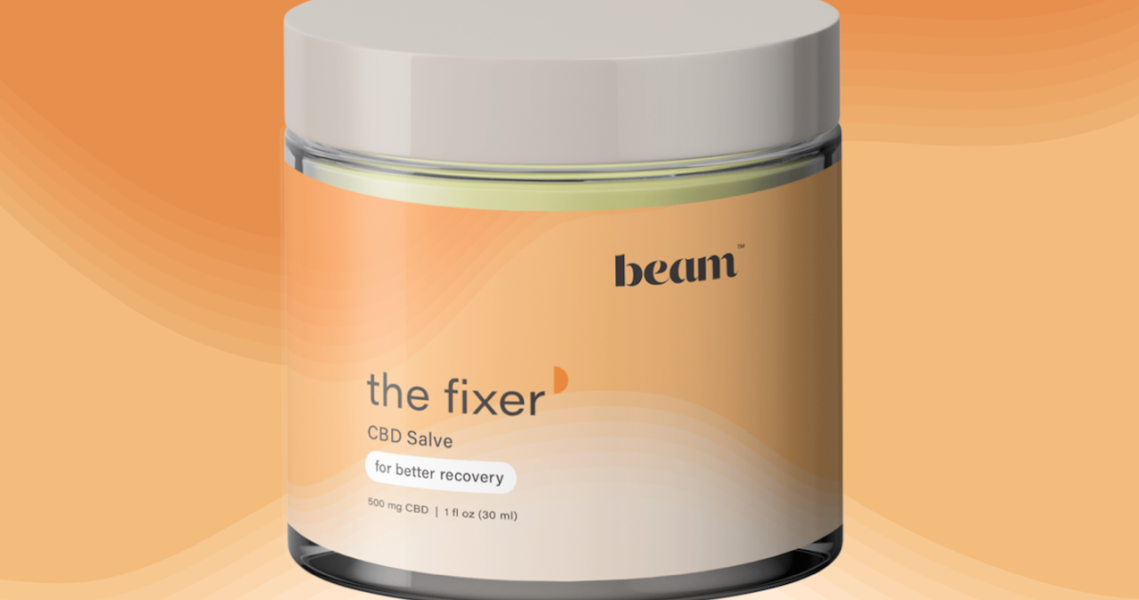Beam, a 2-year-old DTC brand, is out to show that CBD is not just a product of the Netflix-and-chill variety.
CBD first emerged in the beauty industry as a means of combatting skin inflammation in beauty, before quickly finding itself as a wellness supplement to address stress and anxiety. But Massachusetts-based Beam offers ingestible supplements aimed at improving athletic performance and recovery, as well as mental acuity. It relies on its association with athletes to convey its elite performance branding. On Monday, it announced actor Patrick Schwarzenegger as both an investor (Beam has $7 million total funding) and brand ambassador, joining its existing network of athletes and fitness enthusiasts which includes former American Racing driver Danica Patrick and PGA Pro golfer Billy Horschel.
As the brand picks up steam, it’s focused on tightening its athletic branding through a refined e-commerce merchandising strategy, which will also prepare it for planned wholesale-retail expansion in 2021. The brand has experienced a 100% sales increase since March, according to Kevin Moran and Matt Lombardi, Beam co-founders. Moran and Lombardi said Beam expects to grow sales 400-500% in 2020, but declined to cite specific financial figures.
CBD has experienced a veritable rollercoaster ride over the last six months, as the category experienced fallout from temporary retail closures but also increased interest from consumers. Beam’s own proposition intersects with a larger trend within beauty and wellness, one that increasingly uses athletes to market brands. Credo recently partnered with Venus Williams on sunscreen brand EleVen, while Estée Lauder and SK-II have ambassadorships with MME fighter Ronda Rousey and Olympic gymnast Simone Biles, respectively. But there are also brands that fall under the “active beauty” category which caters specifically to athletic customers’ unique needs, like sweat-proof and pollution-fighting topicals. Beam is simply taking those two approaches to wellness, said Moran.
“In this space, people want to hear from people that inspire them or that they trust,” said Moran. “[Our customers] started out as more athlete-specific types, and it’s branched out from there. Our idea was to build products that professional athletes want to use, but also market and package the brand to the masses who just have active lifestyles.”
Along with elite athletes, including Patrick and Horschel, the brand’s ambassadors include macro-, mid-size and micro-influencers. In total there are 130 ambassadors, who generate 35% of Beam’s profit, according to the founders. Advertising, word of mouth and other unpaid marketing comprise the rest.
Lombardi said that CBD’s explosion in use cases, such as CBD dog treats, infused clothing, and bath bombs, has driven confusion for consumers. Beam’s own product portfolio up until now had no segmentation, so its brand updates provide some clarification by displaying products according to four areas of focus: sleep, performance, balance (for stress and anxiety) and athletic recovery. It launched a new Focus Capsules product on Sept. 2. Though the brand is DTC-only, Lombardi said being able to have products stick out on the shelf informed the direction of the brand. This includes how products line up next to each other, so their design elements match up and create a “wave and flow” in their patterns, he said. Additional website updates include a three-question product recommendation quiz, which lives on its own page.
Ad position: web_incontent_pos1
“If you went to our site [prior to today], we just had products there. There wasn’t as much messaging and communication to the consumer about our 360-degree approach to health and wellness that is powered by CBD and these functional products,” said Lombardi. “Now you can more clearly understand what product might be best for you based on your pain points.”




